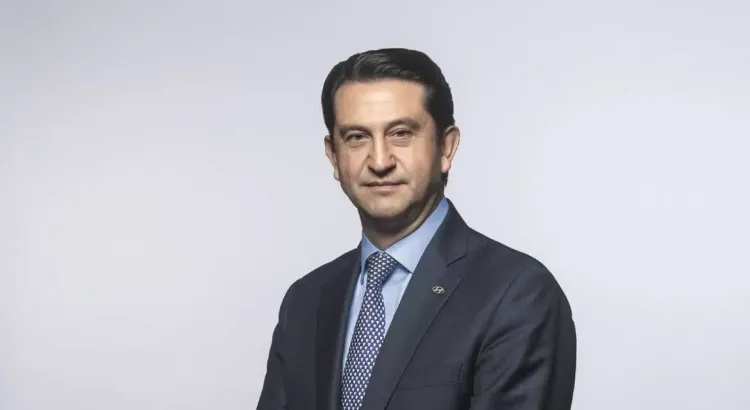Hyundai Motor Excludes Immediate Price Increase in US Amid Tariff Surge

Synopsis
Key Takeaways
- Hyundai Motor will not increase U.S. vehicle prices.
- Recent tariffs of 25 percent on imports will not affect pricing strategy.
- CEO Jose Munoz confirmed ongoing commitment to competitive products.
- Investment of $21 billion in the U.S. through 2028 announced.
- Kia plans to use the new HMGMA plant to mitigate tariff impacts.
Seoul, April 3 (NationPress) Hyundai Motor has decided against raising vehicle prices in the United States at this moment, despite the recent implementation of Washington's 25 percent tariffs on automobile imports as part of US President Donald Trump's ‘America First’ trade strategy, the company's CEO announced on Thursday.
"I noticed the announcement early this morning. It was not unexpected as it has already been discussed," Hyundai Motor CEO Jose Munoz stated to reporters during the media day of the 2025 Seoul Mobility Show at KINTEX in Goyang, located just northwest of the capital.
Munoz further stated, "What I can assure you is that we will not be increasing prices at this time."
He was addressing inquiries regarding Trump's declaration of new reciprocal tariffs affecting America's trading allies, including South Korea, as reported by the Yonhap news agency.
While automobiles are not included in this specific scheme, they are impacted by a distinct 25 percent sectoral tariff, which took effect earlier today.
"Our strategy in the market is to consistently remain competitive. We must provide our customers with appealing products featuring excellent design, advanced technology, and high-quality services," the CEO asserted. "We will continue this approach."
The United States serves as a crucial auto export destination for South Korea. In 2024, automotive exports to the U.S. reached $34.7 billion, representing 49.1 percent of the nation’s total car exports for the year. Last year, Hyundai Motor Group and GM Korea exported approximately 970,000 and 410,000 units to the U.S., respectively.
In light of the tariff challenges posed by Trump, Hyundai Motor Group unveiled a plan last week to invest $21 billion in the U.S. by 2028.
Meanwhile, Kia CEO Song Ho-sung emphasized that the carmaker, which is part of Hyundai Motor, has established a business framework that enables it to adapt quickly and effectively to market challenges.
"Kia has a mechanism in place that allows for rapid and flexible responses," Song informed reporters at the auto trade event. "Once we determine our internal direction, we will explore how to react swiftly and navigate the situation."
He mentioned that Kia intends to leverage the Hyundai Motor Group Metaplant America (HMGMA) in Georgia to mitigate the effects of the tariffs. The facility, which officially commenced operations last month, currently has a production capacity of 300,000 units annually and aims to expand to 500,000 units.
"Approximately 40 percent of HMGMA's output will be designated for Kia vehicles," Song noted. "Production is anticipated to start by the middle of next year, and since our EV6 and EV9 models are already being manufactured at our separate plant in Georgia, the upcoming models at HMGMA will likely include hybrid electric vehicles."








